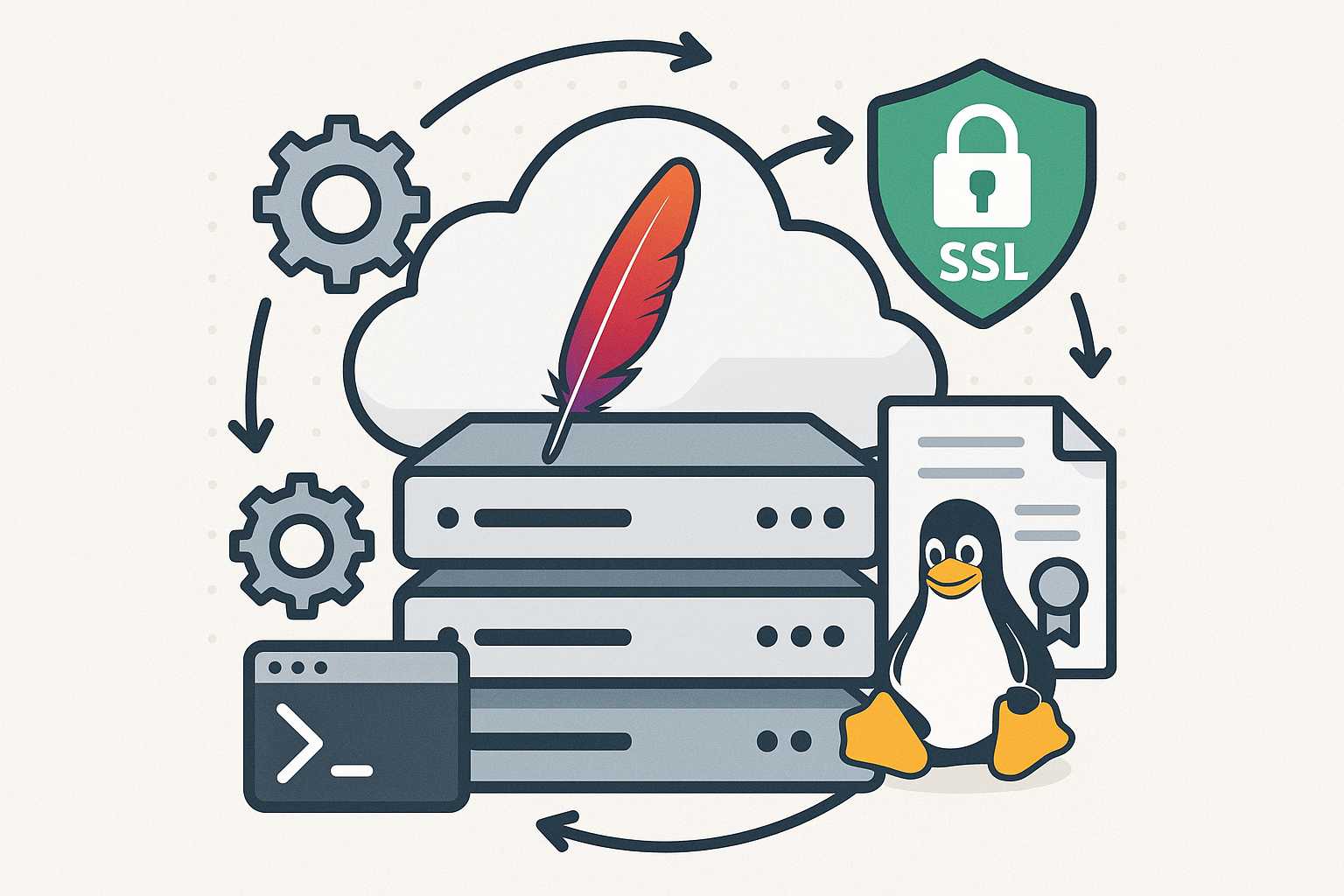Ensuring your websites remain secure with a valid SSL certificate is essential for modern web hosting. However, manually renewing and installing SSL certificates can become a tedious and error-prone process, especially if you manage multiple Apache servers. Luckily, with the right command-line tools and a little automation, you can set up seamless renewals and installations, minimizing downtime and administrative overhead. In this article, I’ll show you how to automate SSL certificate renewal for Apache using Let’s Encrypt’s Certbot and systemd on a typical Linux server.
Why Automate SSL Renewal?
Auto-renewal not only saves you time but also guarantees your certificate never unexpectedly expires—ensuring continuous HTTPS availability. Let’s Encrypt certificates are only valid for 90 days, so automation is a must for peace of mind.
Step 1: Installing Certbot
Certbot is the official client for Let’s Encrypt and is available in most distributions. For Ubuntu/Debian:
sudo apt update
sudo apt install certbot python3-certbot-apache
For RHEL/CentOS:
sudo yum install epel-release
sudo yum install certbot python3-certbot-apache
Step 2: Obtaining Your First Certificate
Use Certbot’s Apache plugin to request and install the certificate interactively:
sudo certbot --apache
Follow the prompts to select your site’s domain(s) and enable HTTPS in Apache. Certbot handles the Apache configuration for you.
Step 3: Testing Automatic Renewal
Certbot installs a systemd timer (certbot.timer) or a cron job (depending on your distro) to run renewal twice daily. You can test renewal and Apache reloading with:
sudo certbot renew --dry-run
Make sure there are no errors in the output. If you’ve used the --apache plugin, Certbot will automatically reload Apache after successful renewal.
Step 4: Ensuring Apache Reloads on Renewal
When Certbot renews a certificate, it can hook into Apache to reload configuration. By default this works, but if you use custom scripts or need extra steps, create a deploy hook script, for example:
sudo nano /etc/letsencrypt/renewal-hooks/deploy/reload-apache.sh
Add:
#!/bin/bash
systemctl reload apache2 # Or `httpd` on RHEL-based systems
Make it executable:
sudo chmod +x /etc/letsencrypt/renewal-hooks/deploy/reload-apache.sh
Step 5: Monitoring and Troubleshooting
Check systemctl status certbot.timer or your cron logs to confirm automatic renewal runs. Also, review Certbot logs in /var/log/letsencrypt/ if you run into problems.
Conclusion
With these simple steps, you can automate SSL certificate management for your Apache-powered sites and enjoy hands-off, secure web hosting. Automation via Certbot and systemd (or cron) is reliable and easy to set up, making it a must for every Linux server administrator.
Happy hosting! —Lenny


Leave a Reply